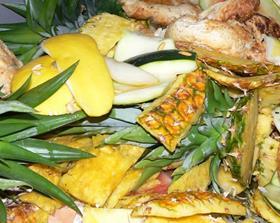
UK-based Waste Reduction & Resources Action Programme (WRAP) and government-funded sustainable resource specialist Envirowise have announced that they are to cooperate on a research programme analysing the total amount of fresh fruit and vegetable waste in the country's supply chain.
The study has been designed to gather a better understanding of where waste builds up by looking at 11 products at key points in the supply chain, and calculating the subsequent carbon and economic impacts.
When the results have been collaborated, best practice guidelines will be drawn up covering storage, handling and packaging, with companies able to implement their own solutions to reduce wastage.
'Understanding where and how much fresh produce food and packaging waste is generated at all points in the chain on a product-by-product basis will help to identify and develop the best solutions to reduce it,' said WRAP's retail supply chain programme manager Charlotte Henderson. 'Implementing these solutions will enable considerable benefits to companies operating across the supply chain – economic and environmental – to be delivered and we would actively encourage companies to be part of this research.'
The data collection process wil include a review of industry literature as well as on-site waste reviews, the group said, with research carried out by Cranfield University, IGD and the Fresh Produce Consortium (FPC).
Interviews with participating companies began in April and cover differences in temperature management, susceptibility to ethylene and physical damage as well as seasonality and country of origin and availability.
'We are encouraging our members, including retailers, wholesalers and distributors to participate in the project, which will provide valuable information for the fresh produce sector on how to quantify and reduce both food and packaging waste,' said FPC chief executive Nigel Jenney.



